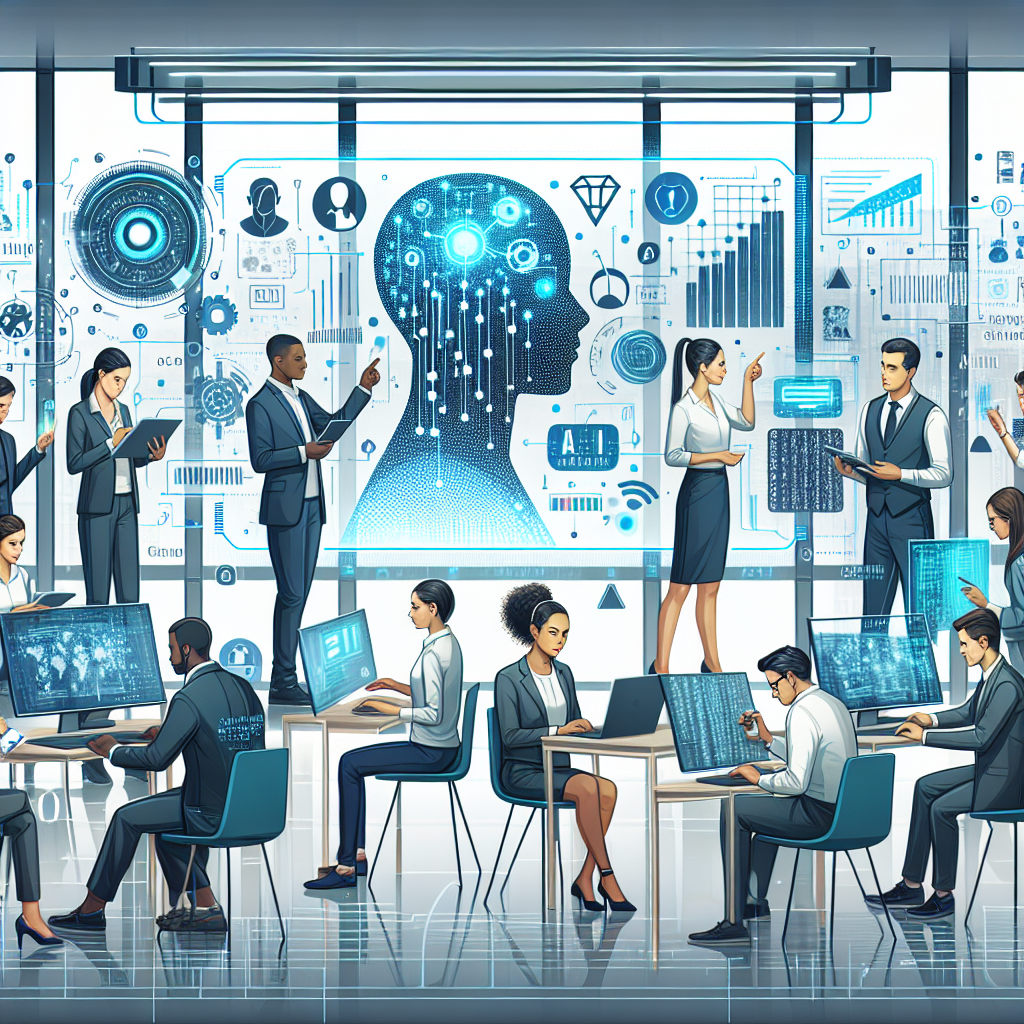Artificial General Intelligence (AGI) is the next frontier in artificial intelligence development. Unlike current AI systems that are designed for specific tasks, AGI aims to mimic human intelligence and reasoning across a wide range of tasks and domains. As AGI technology continues to advance, it is poised to revolutionize the workplace and impact jobs and careers in ways that we have never seen before.
In this article, we will explore the potential impact of AGI in the workplace, how it will change the way we work, and what it means for the future of jobs and careers. We will also address some frequently asked questions about AGI and its implications.
The Impact of AGI in the Workplace
AGI has the potential to transform the workplace in a number of ways. Here are some key ways in which AGI is expected to impact jobs and careers:
1. Automation of Routine Tasks: AGI has the ability to automate routine tasks that are currently performed by humans. This includes tasks such as data entry, customer service, and basic administrative work. By automating these tasks, AGI can free up human workers to focus on more complex and creative tasks.
2. Increased Efficiency: AGI can also help improve efficiency in the workplace by streamlining processes, analyzing data more quickly and accurately, and making better decisions. This can lead to increased productivity and cost savings for businesses.
3. New Job Opportunities: While some jobs may be automated by AGI, new job opportunities are also likely to be created. For example, AGI will create new roles for developers, data scientists, and AI trainers who are needed to build and maintain AGI systems. Additionally, AGI can enable the creation of new products and services that require human input and creativity.
4. Enhanced Decision Making: AGI can help businesses make better decisions by analyzing vast amounts of data, identifying patterns and trends, and predicting outcomes. This can give companies a competitive edge in a rapidly changing business environment.
5. Improved Customer Service: AGI can be used to provide personalized and efficient customer service through chatbots, virtual assistants, and other AI-powered tools. This can enhance the customer experience and improve customer satisfaction.
6. Augmented Workforce: AGI can augment human workers by providing them with tools and insights to help them perform their jobs more effectively. This can lead to a more skilled and adaptable workforce that is better equipped to handle the challenges of the future.
FAQs about AGI in the Workplace
Q: Will AGI replace all human workers?
A: While AGI has the potential to automate many tasks currently performed by humans, it is unlikely to replace all human workers. Human workers will still be needed to perform tasks that require creativity, empathy, and complex decision making.
Q: How will AGI impact job security?
A: AGI is expected to disrupt traditional job roles and industries, leading to job displacement in some sectors. However, new job opportunities are also likely to be created as a result of AGI technology. It is important for workers to adapt and acquire new skills to remain competitive in the changing job market.
Q: Will AGI lead to mass unemployment?
A: While AGI may lead to job displacement in some sectors, it is unlikely to result in mass unemployment. Historically, technological advancements have led to the creation of new job opportunities and industries. It is important for policymakers to address the potential impact of AGI on the workforce and implement measures to support workers through this transition.
Q: How can workers prepare for the impact of AGI?
A: Workers can prepare for the impact of AGI by acquiring new skills, staying up-to-date with technological developments, and being open to learning new technologies. Lifelong learning and continuous skill development will be key to remaining competitive in the future job market.
Q: What are the ethical implications of AGI in the workplace?
A: AGI raises ethical concerns related to privacy, security, bias, and accountability. Businesses and policymakers must address these ethical considerations to ensure that AGI is used responsibly and ethically in the workplace.
Conclusion
AGI has the potential to revolutionize the workplace and impact jobs and careers in profound ways. While there are concerns about the displacement of jobs and the ethical implications of AGI technology, there are also opportunities for innovation, creativity, and productivity. It is important for businesses, policymakers, and workers to prepare for the impact of AGI and adapt to the changing landscape of the future workplace. By embracing AGI technology and leveraging its capabilities, we can create a more efficient, productive, and inclusive workplace for all.

